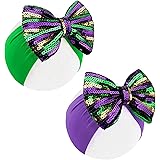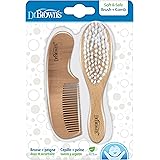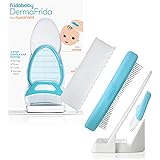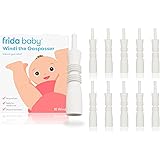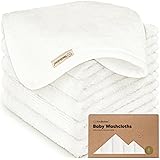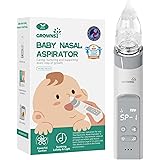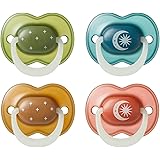It is widely acknowledged that infant skin is considerably more permeable and delicate than adult skin, often being 20-30% thinner. This inherent vulnerability necessitates a distinct approach to their daily care regimen. As insightfully highlighted in the accompanying video, the generalized formulations prevalent in adult hygiene and cleaning products are fundamentally unsuited for a baby’s developing physiology. The critical distinction lies in the composition of these products, where specific considerations for natural baby products become paramount for optimal baby health and hygiene.
The Unique Vulnerabilities of Infant Skin and Systems
An infant’s epidermal layer is still maturing, possessing a less robust skin barrier function compared to that of an adult. This reduced barrier efficacy means substances applied topically are more readily absorbed into the bloodstream. Consequently, adult products, frequently laden with potent surfactants, synthetic fragrances, and preservatives such as parabens and phthalates, pose a heightened risk of irritation, allergic reactions, and even systemic exposure for babies.
Furthermore, a baby’s immune system is in its nascent stages of development, making it more susceptible to environmental aggressors. Exposure to harsh chemicals, whether through direct skin contact or inhalation from laundry detergents, can potentially disrupt delicate internal systems. The cumulative effect of these exposures is a significant concern for parents diligently seeking to protect their “little angels.”
Decoding “Natural”: Essential Ingredients in Baby Health and Hygiene Products
The term “natural” in the context of baby care typically signifies formulations derived from botanical sources, characterized by minimal processing and the deliberate exclusion of synthetic additives widely known to cause adverse reactions. These baby health and hygiene products are meticulously crafted to provide effective care while safeguarding the baby’s delicate equilibrium.
Beneficial ingredients commonly encountered in natural baby product lines include plant-based cleansers like coco-glucoside, emollients such as shea butter or cocoa butter for intense moisturization, and soothing botanicals like calendula, chamomile, or aloe vera to calm irritated skin. These components are selected for their gentle efficacy and their compatibility with sensitive skin, often ensuring formulations are pH-balanced and hypoallergenic.
Gentle Cleansing: Baby Washes and Shampoos
When selecting baby washes and shampoos, a tear-free formulation is often a primary consideration, but the underlying ingredients are equally vital. Products engineered with mild, plant-derived surfactants are designed to cleanse effectively without stripping the skin’s natural moisture barrier. These specialized washes aim to maintain the skin’s physiological integrity, preventing dryness and discomfort.
Protecting Delicate Fabric: Baby Laundry Detergents
The selection of baby laundry detergents warrants particular attention, as residues on clothing are in constant contact with a baby’s skin. Formulations that are enzyme-free, dye-free, and fragrance-free significantly reduce the risk of irritation. Such detergents are engineered to be tough on common baby stains, like milk, food, and diaper leaks, yet exceptionally gentle, ensuring no harsh chemicals linger on fabrics.
Nurturing Skin: Lotions, Creams, and Diaper Care
Consistent moisturization is a cornerstone of baby care, particularly for infants prone to dry patches or eczema. Lotions and creams formulated with plant-derived oils, such as sunflower oil or almond oil, offer superior hydration without occluding pores. Additionally, barrier creams for diaper rash, often containing zinc oxide or natural waxes, are indispensable for protecting the skin from moisture and irritants.
The Imperative of Efficacy: Natural Products Tough on Germs, Gentle on Babies
The necessity for baby products to be “tough on germs” while remaining gentle on infants is a nuanced requirement. Modern natural formulations achieve this balance by utilizing mild antiseptic properties from certain plant extracts, or by relying on effective, yet non-toxic, cleaning agents that physically remove pathogens. The objective is to ensure a hygienic environment without compromising the baby’s developing microbiome, which is crucial for immune system maturation.
This approach stands in stark contrast to harsh chemical disinfectants that indiscriminately eliminate both harmful and beneficial microorganisms. The goal is focused cleansing and protection, fostering an environment where a baby can thrive without exposure to unnecessary chemical burdens.
Making Informed Choices: What Parents Should Look For
Navigating the plethora of baby products available necessitates an informed approach. Parents are advised to prioritize products bearing certifications such as “dermatologically tested,” “allergy-tested,” or those denoting organic ingredients, where applicable. Transparency in ingredient lists is also a key indicator of a trustworthy brand, enabling parents to identify and avoid potentially irritating substances.
Opting for reputable brands that specialize in baby care, and which demonstrably invest in research and safety testing, is a prudent strategy. Furthermore, a patch test on a small area of the baby’s skin before widespread use of any new product is always recommended to ascertain compatibility. The commitment to selecting appropriate natural baby products significantly contributes to a child’s overall well-being, providing the “little extra” care every infant deserves.
Nurturing Your Little Angel: Natural Product Q&A
Why should I use natural products for my baby?
Baby skin is significantly thinner and more permeable than adult skin, making it highly susceptible to irritation and the absorption of harsh chemicals. Natural products are formulated to be gentle and safer for a baby’s delicate skin and developing systems.
What does “natural” typically mean for baby products?
In baby care, “natural” generally refers to products made with ingredients derived from botanical sources, featuring minimal processing, and intentionally excluding synthetic additives. These products often include plant-based cleansers, natural emollients, and soothing botanical extracts.
Can natural baby products effectively fight germs?
Yes, natural formulations are designed to be tough on germs while gentle on babies. They achieve this by using mild antiseptic plant extracts or effective, non-toxic cleaning agents that physically remove pathogens, promoting hygiene without harsh chemicals.
What should I look for when choosing natural baby products?
Look for products with certifications like “dermatologically tested” or “allergy-tested,” clear and transparent ingredient lists, and opt for reputable brands. It’s also recommended to perform a patch test on a small area of your baby’s skin before widespread use.


